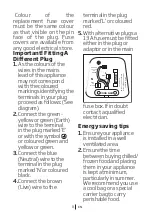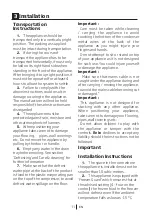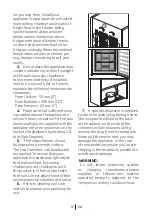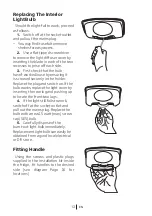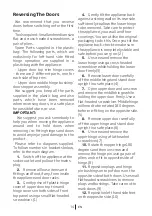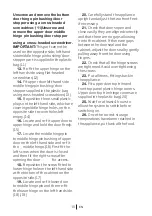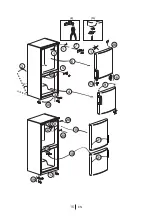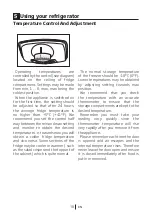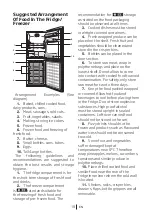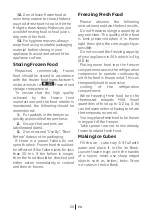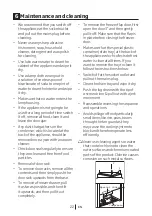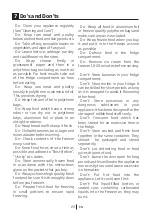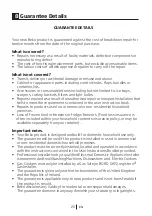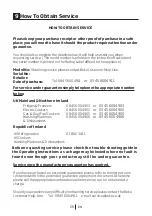
EN
21
Note: If freshly made ice cubes are
not consumed for several weeks
and stored in Ice Bank, they will
slowly reduce in size and eventually
disappear completely.
Defrosting
A) Fridge Compartment
The fridge compartment defrosts
automatically.
The defrosting water runs to the
drain tube via a collection container
at the back of the appliance (1). (see
diagram) During defrosting water
droplets may form at the back of the
fridge compartment where concealed
evaporator is located. Some droplets
may remain on the liner and refreeze
when defrosting is completed. Do not
allow items in the fridge to touch the
back wall as the water droplets will
make them wet. Do not use pointed
or sharp edged objects such as knives,
forks to remove the droplets which
have frozen.
If at any time the defrost water does
not drain from the collection channel,
check to ensure that no food particles
have blocked the drain tube. The drain
tube can be cleared by pushing the
special plastic plunger provided down
the drain tube (2). If the frost layer
reaches about 1/4”(7 mm), reduce
the setting (i.e. from 4 to 1) to restart
automatic defrosting
Warning:
Do not use any copper pots or dıshes
ınsıde the cabinet !
Do not load any food wıthout
packaging.!
B) Freezer Compartment
The freezer compartment defrosts
automatically.
Warnings!
The fan inside the freezer
compartment circulates cold air. Never
insert
any object through the guard. Do not
allow children to play with
the freezer fan.
Never store products that contain
inflammable propellant gas
(eg dispensers, spray cans etc.) or
explosive substances.
Don’t cover the shelves with any
protective materials, which may
obstruct air circulation.
Do not allow children to play with the
appliance or tamper with the controls.
Do not obstruct the freezer fan
guard to ensure that you obtain the
best possible performance from your
appliance.


